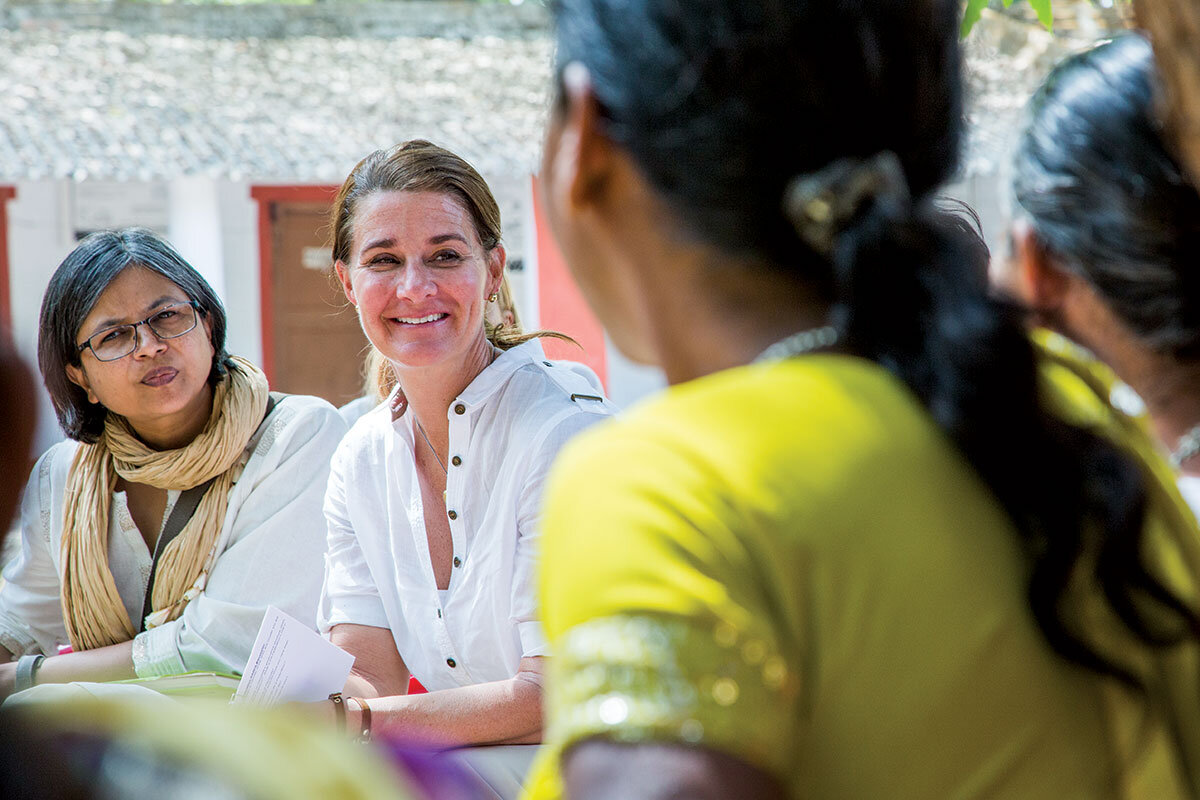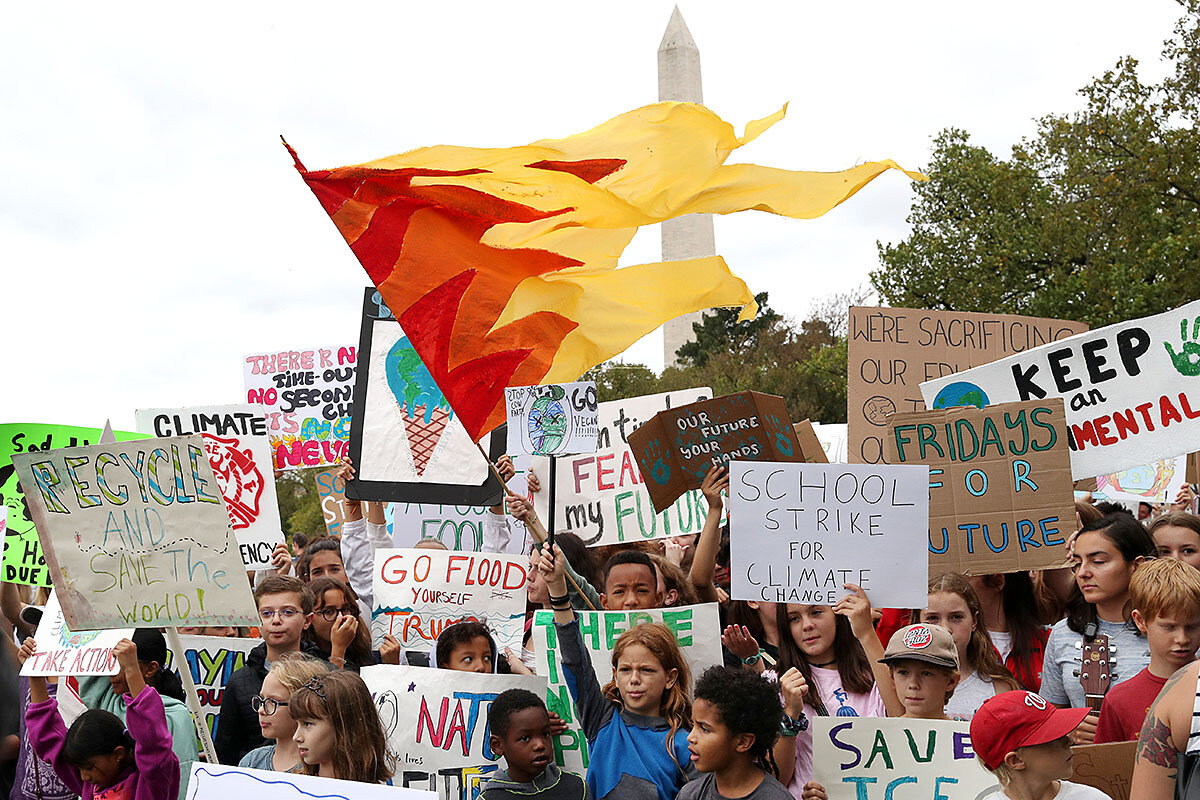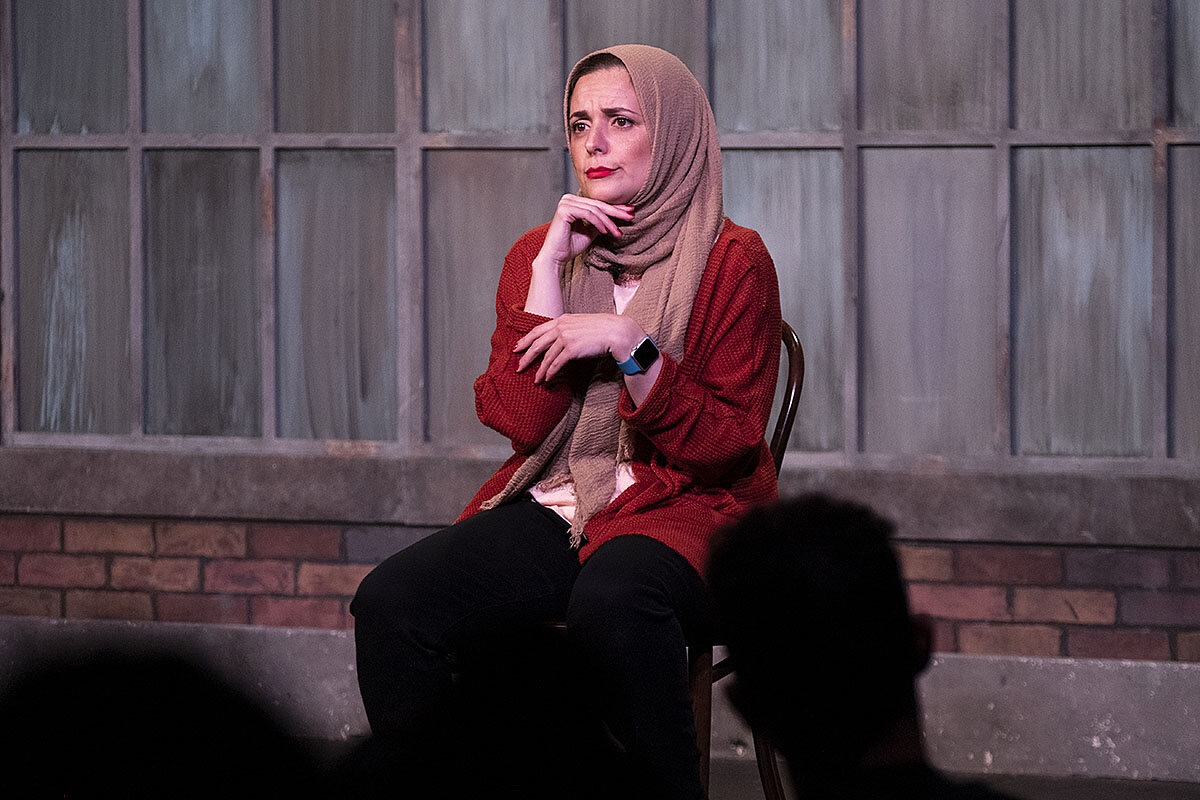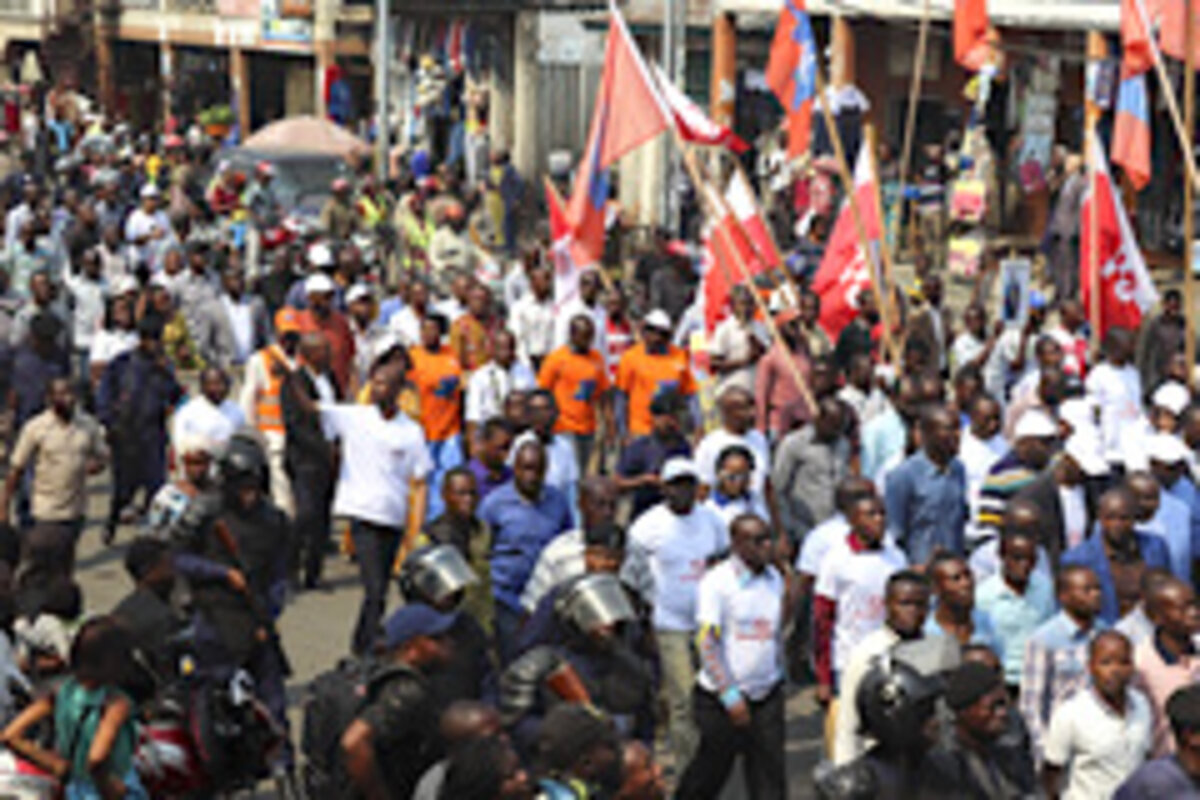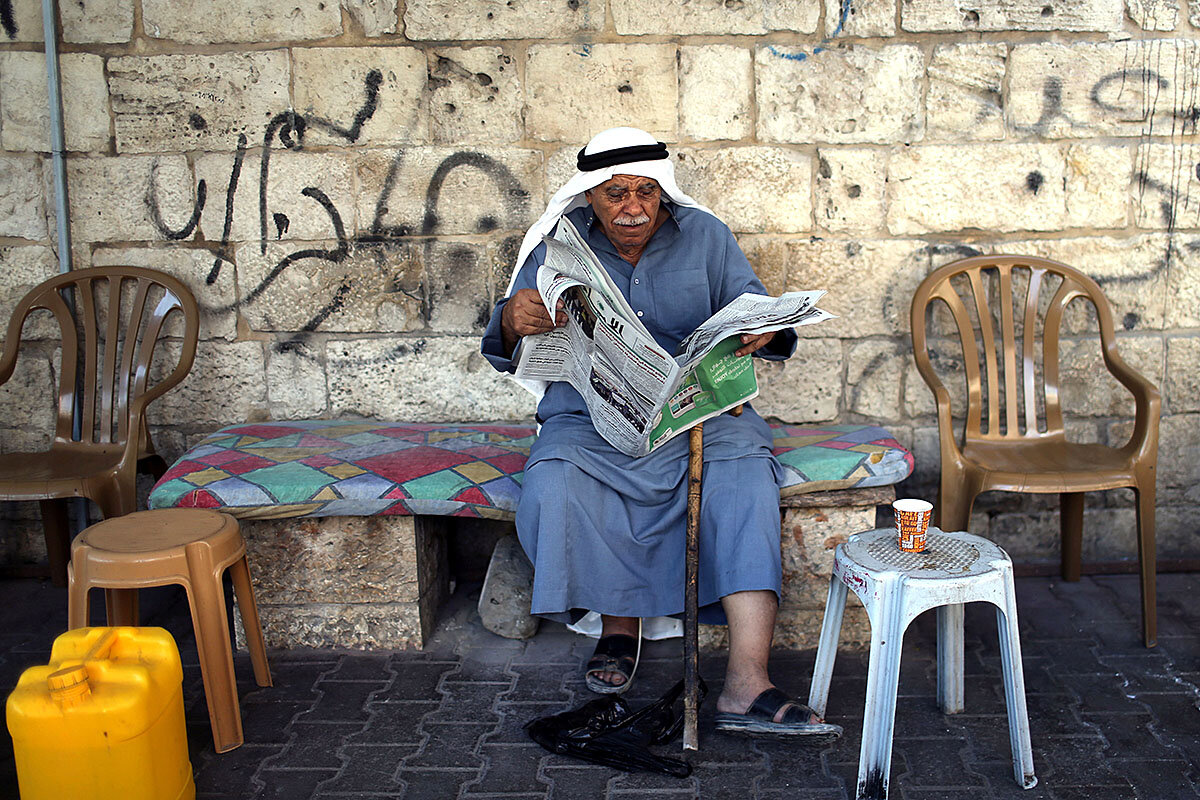In her work overseeing one of the world’s most influential philanthropic organizations, Melinda Gates has discovered what she considers a fundamental truth about development work: empowering women is the key to uplifting humanity.
Monitor Daily Podcast
- Follow us:
- Apple Podcasts
- Spotify
- RSS Feed
- Download
 Amelia Newcomb
Amelia Newcomb
Today, our five stories delve into what a philanthropist learned from listening, what vaping says about our search for easy fixes to bad habits, the trust factor in climate modeling, a push for Bible literacy in public schools, and Muslim women comics taking the mic.
But, first, a story from California.
They are unusually tall and robust – unusually old, too. They invariably prompt those who encounter them to slip into superlatives, or silent awe. They’ve witnessed natural disasters and nature’s rebirth. And now, their future is a bit more secure.
“They” are 483 giant sequoias, which for 60 years have lived within the world’s largest privately owned giant sequoia forest, some 538 acres in California’s southern Sierra Nevada. The owners have agreed to sell the property for about $15 million to the Save the Redwoods League, which, assuming it meets fundraising goals, will ultimately transfer it and another property to the U.S. Forest Service for inclusion in the Giant Sequoia National Monument.
It can seem counterintuitive to feel protective of trees whose mightiness is unassailable. Their stature, as venerable sentinels that have stood through the global comings and goings of the Roman Empire, the Han dynasty, and Mayan civilization, provides a young country with its own sense of ancient history. Like their native land, the trees dwell comfortably with bigness: the property’s famed Stagg tree, which dates back 2,000 years, soars 250 feet tall and is wider than a two-lane highway. And now they dwell safely, protected by a sense of stewardship of something that is so much bigger than ourselves.




